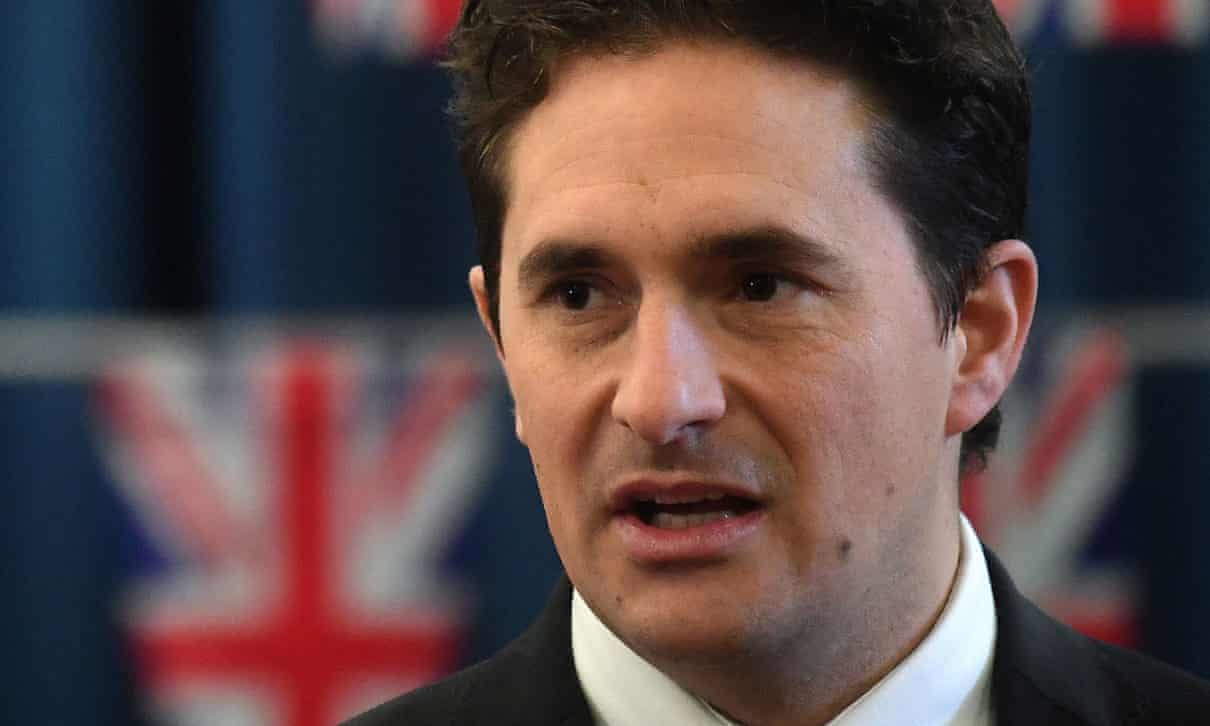Defence minister Johnny Mercer resigns from government
Johnny Mercer has resigned as junior defence minister, frustrated that the government has failed to implement controversial pledges to prevent veterans who served in Northern Ireland from being prosecuted.
After hours of speculation, Downing Street said Boris Johnson had “accepted the resignation” in a terse statement released after 7pm and thanked Mercer “for his service” as a minister since 2019.
News of his intention emerged as ministers made a significant concession on the related overseas operations bill, agreeing to drop plans for a five-year limit on torture and war crimes prosecutions for those who served in Iraq and Afghanistan.
Mercer’s decision, however, is not understood to be related to the war crime concession, but instead relates to his concerns about Northern Ireland.
A source said Mercer had hoped a number of upcoming trials involving British veterans would not go ahead, but added there was no realistic prospect of devising legislation to retrospectively halt ongoing prosecutions.
During his Tory leadership campaign Johnson had promised to end the “scourge of vexatious historical investigations” of Northern Ireland veterans. But the government has struggled to bring forward legislation because of the sensitivities of the issue.
About 3,500 people died during the Troubles, which began in the late 1960s, but despite the passage of time many of the deaths have only been gradually investigated by the authorities, as would have happened elsewhere in the UK.
Those being prosecuted include Soldier F, a former paratrooper who is accused of murdering two people on Bloody Sunday, the date in 1972 when soldiers opened fire on civil rights demonstrators in Derry.
Earlier Downing Street had said it was not aware Mercer was intending to quit the government, although allies of the minister said he had already told the prime minister of his decision. Asked if Mercer had spoken to Johnson, the prime minister’s spokesperson said: “I’m not aware they’ve had any conversations.”
Ministers had sought to end what the government called “vexatious prosecutions” affecting soldiers who served abroad, in Iraq, Afghanistan and elsewhere, by bringing forward the overseas operations bill.
The key feature in the bill was to introduce a presumption against prosecution of military personnel, which would apply after five years. Sexual offences were excluded from the bill’s time limit. But until the concession, torture and war crimes were not excluded. Last week peers voted by 333 to 228 to reverse that, forcing the Commons to consider the issue again.
However, on Tuesday afternoon, the Ministry of Defence announced a surprise climbdown, saying “we have listened to concerns”. An MoD spokesperson said: “Excluded offences in part one of the bill will be expanded to include torture, genocide and crimes against humanity.”
Labour said it welcomed the climbdown but John Healey, the party’s shadow defence secretary, said he wanted to study the detail. The human rights charity Reprieve said the concession was significant, but noted that cruel, inhuman and degrading treatment was not included in the list. Dan Dolan, Reprieve’s director of advocacy, added: “This move to decriminalise torture was always disastrously ill-judged.”
Mercer rose to the rank of captain in the Royal Artillery and served three times in Afghanistan. He declared that he went into politics nearly a decade ago to improve the treatment of veterans. He became MP for Plymouth Moor View in 2015, taking the seat from Labour.
Sometimes prone to outbursts, Mercer described Theresa May’s government as a “shit show” in 2018, complaining that her compromises over Brexit had pleased nobody. He said he would not necessarily be voting as a Conservative had he not been an MP for the party.

